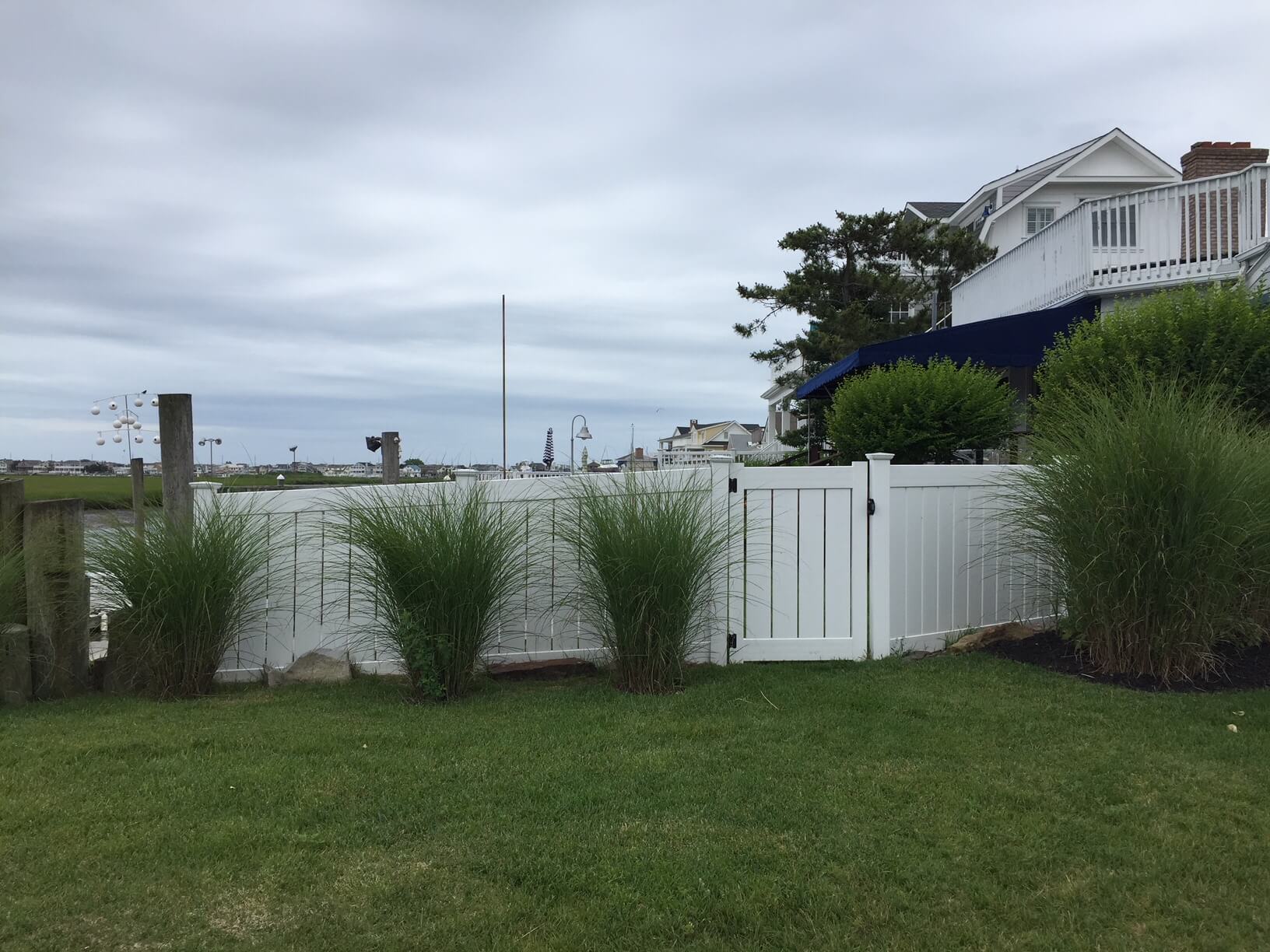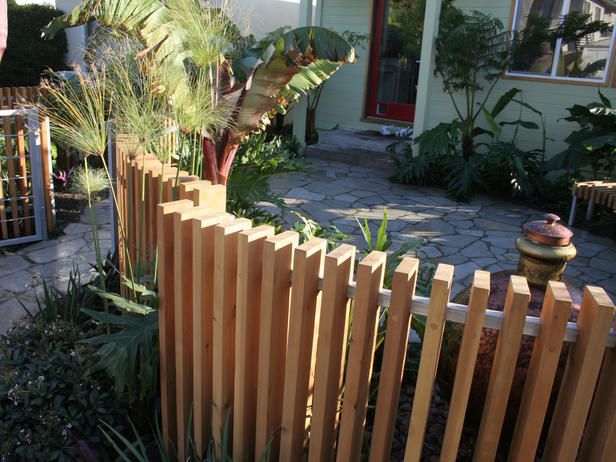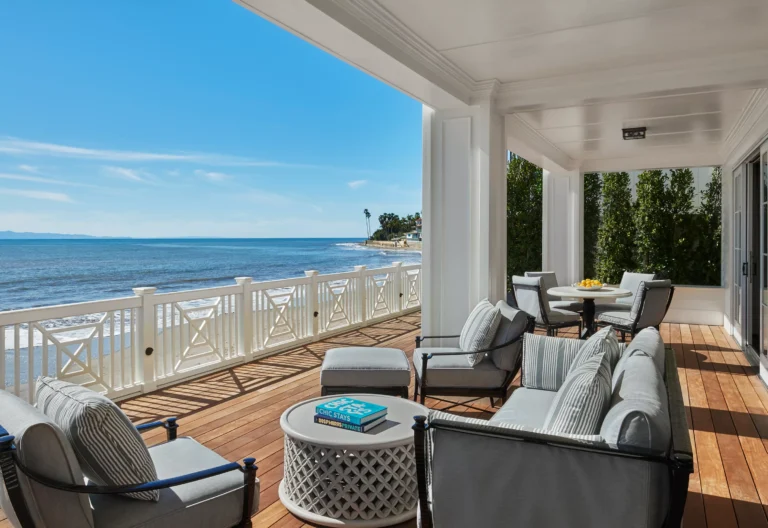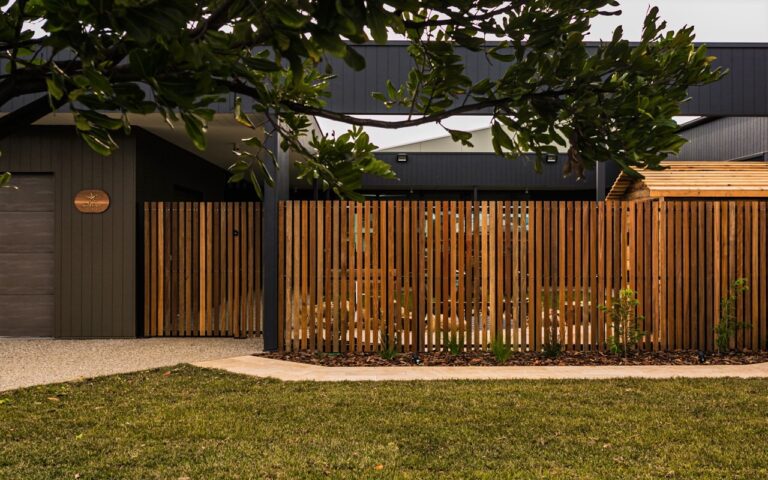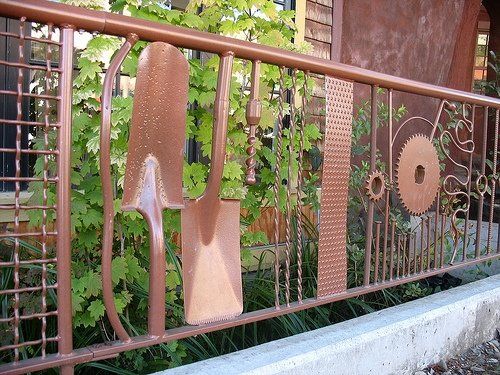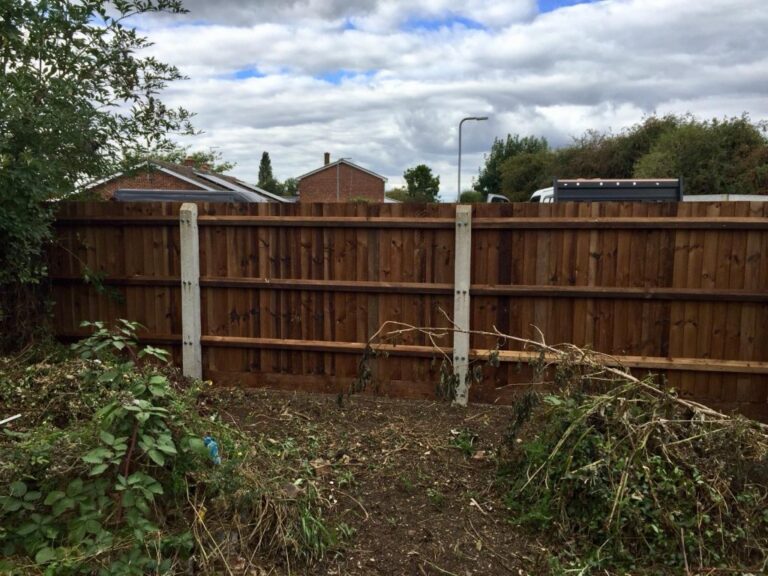Choosing the right fencing for coastal climates is crucial for durability and longevity. Consider materials like aluminum, vinyl, or composite that are resistant to corrosion and can withstand salt and humidity.
Additionally, opt for fences with minimal maintenance requirements to ensure longevity in the coastal environment.
It’s also important to choose a style that complements the coastal aesthetic and provides the necessary privacy and security.
Take into account the wind and weather patterns in your specific coastal area when selecting the height and design of the fence.
By prioritizing materials and designs that can withstand coastal conditions, you can ensure that your fence remains a functional and aesthetically pleasing addition to your coastal property.
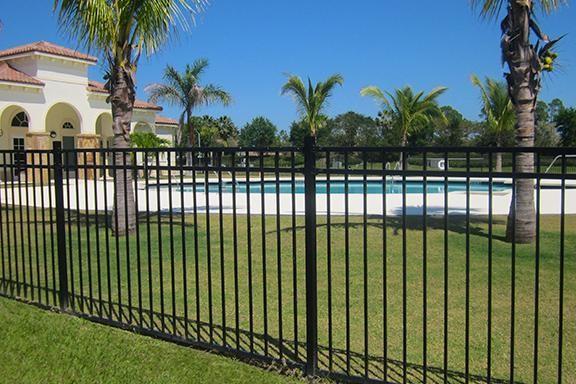
Understanding Coastal Climate Challenges
Living in a coastal area presents challenges for homeowners, particularly in choosing the right fencing.
Coastal climates, with saltwater corrosion, high humidity, and strong winds, can impact fencing materials.
Understanding these challenges is crucial for selecting durable fencing that withstands the harsh coastal environment, providing long-lasting protection and appeal for your property. Free Estimate: Contact Us.
Saltwater Corrosion
Saltwater corrosion is a major concern for coastal homeowners when selecting fencing materials.
The high salt content in the air can lead to rapid decay and degradation of traditional fencing materials, such as untreated wood and certain metals.
Opting for corrosion-resistant materials such as stainless steel, aluminum, or vinyl-coated fencing can help mitigate the effects of saltwater corrosion and prolong the lifespan of the fence.
High Humidity Impact
The high humidity in coastal climates can promote mold, mildew, and rot in organic fencing materials.
Choosing moisture-resistant materials such as composite, vinyl or PVC fencing can help prevent these issues and maintain the structural integrity and appearance of the fence over time.
Strong Winds
Coastal areas are often subject to strong winds, which can put conventional fences at risk of damage or displacement.
Prioritizing sturdy construction and wind-resistant designs when selecting a fence is essential for ensuring durability in these conditions.
Fencing options such as steel or concrete panel fencing, or designs with minimal wind resistance, can help mitigate the impact of strong coastal winds.
Suitable Fencing Material Options
Coastal climates present unique challenges when it comes to choosing fencing materials.
The combination of salt, wind, and humidity can quickly degrade traditional fencing materials.
However, with the right knowledge, you can select fencing materials that are durable and can withstand the harsh coastal environment.
Below are some suitable fencing material options that are well-suited for coastal climates.
Vinyl
Vinyl fencing is an excellent choice for coastal climates due to its resistance to corrosion, rot, and salt water.
Its durability makes it an attractive long-term investment for homes in coastal areas.
Additionally, vinyl fencing is available in a variety of styles and colors, providing versatility to match the aesthetic of any coastal property.
Aluminum
Aluminum fencing is another popular option for coastal areas due to its corrosion resistance.
Its lightweight nature is advantageous in coastal areas with high wind speeds, as it is less likely to sustain damage during storms.
Aluminum fencing is available in a range of styles, providing both security and visual appeal for coastal properties.
Composite
Composite fencing is a blend of wood fibers and recycled plastic that is designed to withstand harsh weather conditions.
It offers the natural look of wood without the susceptibility to rot and decay in coastal climates.
Composite fencing is also low-maintenance, making it an ideal choice for coastal homeowners looking for durability and ease of care.
In conclusion, when selecting fencing materials for coastal climates, it’s essential to consider durability, resistance to corrosion, and low-maintenance requirements.
Vinyl, aluminum, and composite fencing options all offer these benefits, making them suitable choices for coastal properties.
By choosing the right fencing material, homeowners can ensure their properties are well-protected and aesthetically pleasing in the challenging coastal environment.
Pros And Cons Of Each Material
When choosing fencing materials for coastal climates, it’s important to consider the specific pros and cons of each material.
Coastal environments can be harsh on fencing, with salt water, high winds, and excessive moisture posing significant challenges.
Here’s a closer look at the pros and cons of three common fencing materials: vinyl, aluminum, and composite.
Vinyl
Durability: Vinyl fencing is highly durable and can withstand the harsh conditions of coastal climates.
It is resistant to rot, moisture, and pests, making it a long-lasting option.
Maintenance: One of the main advantages of vinyl fencing is its minimal maintenance requirements.
It does not require painting or sealing, and cleaning can be easily done with soap and water.
Aluminum
Corrosion resistance: Aluminum fencing is known for its exceptional corrosion resistance, making it an ideal choice for coastal areas where saltwater and moisture can cause damage to other materials.
Design options: This material offers a wide range of design options, allowing for customization to suit the aesthetic preferences of the property owner.
Composite
Strength: Composite fencing is renowned for its strength and durability, making it a suitable choice for withstanding the elements in coastal climates.
It is resistant to warping and cracking, ensuring longevity.
Environmental impact: While composite fencing is durable, it’s worth considering its environmental impact.
Some composite materials may incorporate recycled components, making them a more eco-friendly option.
Key Considerations For Coastal Fencing Installation
Wind Resistance
Coastal areas are prone to strong winds, making wind resistance a crucial factor in choosing fencing.
Opt for sturdy materials such as aluminum or vinyl, which can withstand high winds without sustaining damage.
Additionally, consider installing a fence with a solid panel design to reduce the impact of strong gusts.
Proper Drainage
Effective drainage is important in coastal climates to prevent water accumulation and potential damage to the fence.
Ensure that the fence design allows for adequate drainage, and consider incorporating gravel or perforated panels to facilitate water runoff and prevent waterlogging.
Saltwater-proofing
Coastal areas are exposed to saltwater, which can corrode certain fencing materials. Look for materials that are resistant to corrosion, such as stainless steel or galvanized steel.
Regular maintenance, such as washing the fence with fresh water to remove salt deposits, can also help prolong its lifespan.
Recommended Fencing Styles For Coastal Areas
When it comes to choosing fencing for coastal areas, it’s crucial to consider the unique challenges posed by salt-laden air, high moisture levels, and strong winds.
Not all fencing styles are suitable for these conditions, so it’s important to select a durable and low-maintenance option.
Here are the recommended fencing styles that are well-suited for coastal climates:
Privacy Fences
Privacy fences are a popular choice for coastal areas, providing a solid barrier against the elements.
These fences offer seclusion and protection from wind and salt spray, while also enhancing the aesthetic appeal of the property.
When selecting a privacy fence for a coastal environment, consider durable materials such as vinyl or composite, which are resistant to corrosion and decay caused by salt exposure.
Additionally, choosing a solid design with minimal gaps or openings helps to minimize the impact of salt and moisture on the structure.
Horizontal Slat Fences
Horizontal slat fences are an excellent option for coastal climates, offering a modern and stylish look while allowing air and light to pass through.
These fences are less susceptible to damage from strong winds and salt spray, making them a practical choice for coastal properties.
Opt for materials like aluminum or powder-coated steel, which are highly resistant to corrosion and require minimal maintenance.
Regular washing to remove salt residue is crucial for preserving the longevity of horizontal slat fences in coastal areas.
Lattice Fences
Lattice fences are an attractive and versatile option for coastal environments, providing a balance of airflow and privacy.
The open design allows for better air circulation, reducing the impact of salt and moisture on the structure.
When choosing a lattice fence for a coastal property, consider materials such as pressure-treated wood or PVC, which offer superior resistance to the corrosive effects of salt air.
Routine inspections and maintenance, including sealing or staining, are essential for preserving the structural integrity of lattice fences in coastal climates.
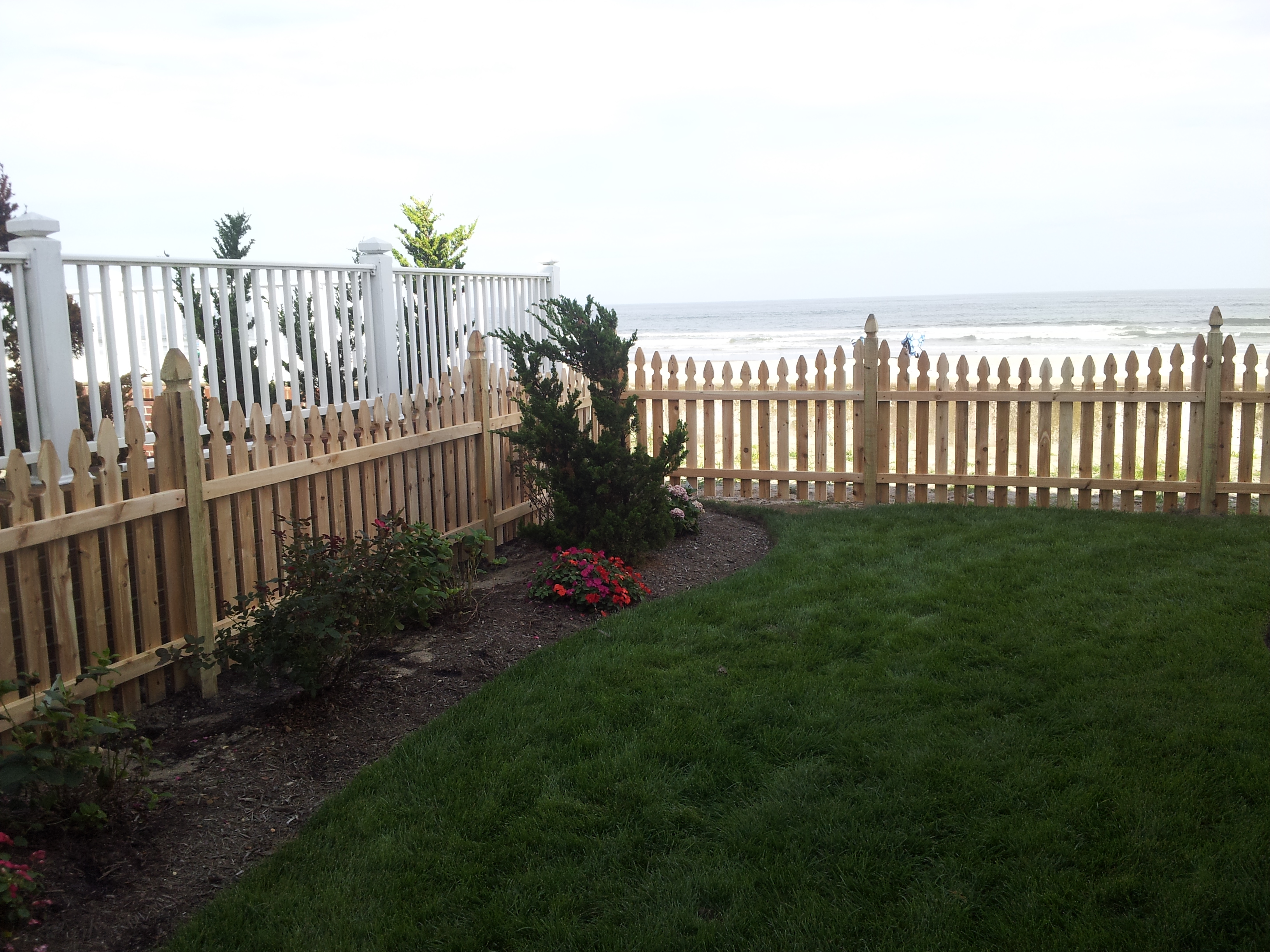
Frequently Asked Questions
What Is The Best Fencing For Coastal Areas?
The best fencing for coastal areas is made of rust-resistant materials like aluminum or vinyl.
These materials can withstand harsh coastal weather conditions and are low-maintenance.
Additionally, PVC fencing is durable and resistant to salt water, making it ideal for coastal locations.
What Is The Best Fence For Weather In Florida?
The best fence for weather in Florida is vinyl or aluminum. Both are durable and can withstand the high humidity and salt air.
They require minimal maintenance and are resistant to rust, rot, and corrosion. These fences also come in various styles to suit your aesthetic preferences.
What Is The Most Weather Resistant Fence?
The most weather-resistant fence is typically made of vinyl or aluminum. These materials are durable and resistant to damage from weather elements.
They require minimal maintenance and are ideal for areas with extreme weather conditions.
Conclusion
Choosing the right fencing for coastal climates is essential for durability and longevity.
By considering materials like steel or aluminum, regular maintenance, and proper installation, you can ensure resilience against salt air and harsh weather.
Make informed decisions to protect your property with a fence that can withstand the challenging coastal conditions.

